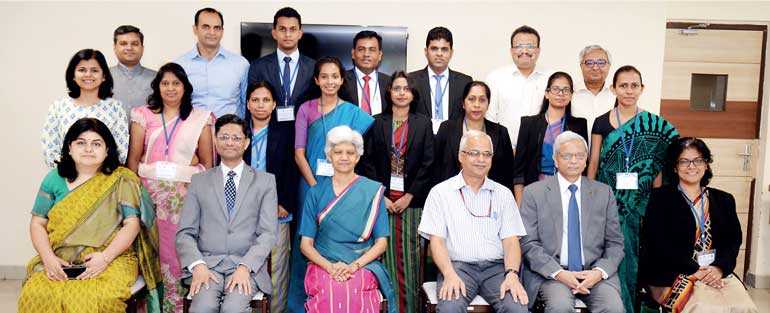Thursday Feb 26, 2026
Thursday Feb 26, 2026
Monday, 15 July 2019 01:37 - - {{hitsCtrl.values.hits}}

Sri Lanka Capacity Building program
The International Trade Centre (ITC) supported the participation of Sri Lankan Government officials in a capacity-building program on trade remedy measures at the Centre for World Trade Organisation (WTO) Studies (CWS) of the Indian Institute of Foreign Trade in New Delhi. Officials from the Sri Lanka Department of Commerce attended this five-day tailor-made course within the framework of the EU–Sri Lanka Trade Related Assistance project, funded by the European Union (EU), of which ITC is the lead implementing agency.
The training program helped participants to enhance their technical knowledge on the implementation of trade remedy laws, legal instruments and other related articles. The course further equipped them with skills to effectively conduct trade remedy investigations through practical exercises and case studies. Experiences and lessons learned in the Indian market regarding the implementation of trade remedies were also shared with the participating officials.
There is a genuine requirement for Government officials to understand these complex trade remedy rules, so as be equipped to apply them within the framework of WTO stipulations. WTO measures such as anti-dumping duty, countervailing duty and safeguard measures are contingency options available within the scope of the WTO mechanism for governments to utilise these instruments in contexts where domestic industries are at risk of getting negatively impacted due to large scale of imports. This training sought to instil on the participating government officials a sound understanding of the highly complex nature of these WTO provisions and the methods in which they can be applied.
Speaking at the event, High Commission of Sri Lanka in New Delhi Minister (Commercial) Upekkha Samaratunga said, “the Department of Commerce, as the Designated Authority in Sri Lanka for anti-dumping, countervailing and safeguard measures, is now in the process of strengthening the in house Trade Remedy unit, not only to participate in WTO negotiations, but also to assess and investigate, and to advise the domestic industry on application of remedial measures. Therefore, this kind of capacity building training programs are of paramount importance to the Commerce Department officials to acquire knowledge and to gain experience especially on application aspect.”
Speaking of the important role played by the training sessions, one of the trainers, Prof. Mukesh Bhatnagar from the Centre for WTO Studies, said, “This helped in developing the understanding of officials on the technical aspects of conducting investigations while invoking these trade remedy measures to protect the domestic industry in their country in a manner which is consistent with the obligations under the WTO Agreements.”
Department of Commerce Deputy Director Ruwanthi Ariyaratne, who participated in the training, said, “The course provided both legal, technical and practical knowledge on the implementation of trade remedy laws and the conducting of investigations under these laws. Since we are in the process of establishing the trade remedy unit at the Department of Commerce, these knowledge and experience sharing from senior practitioners in India was very constructive.”